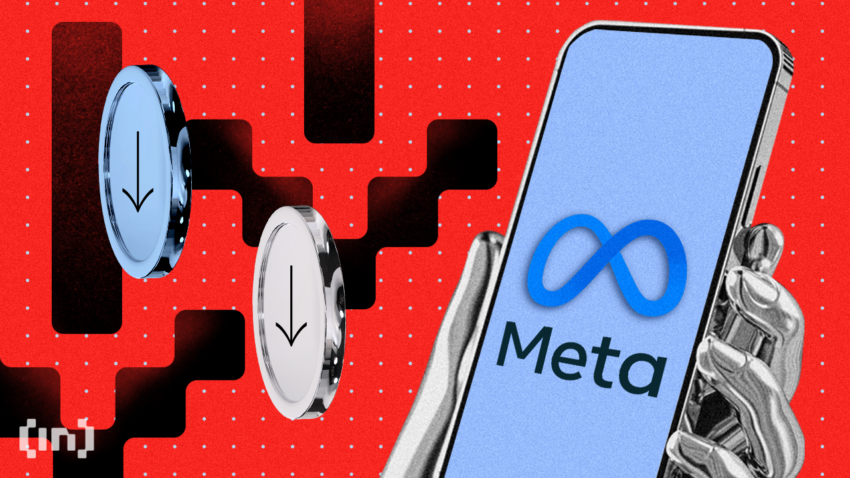The European Union (EU) has fined Meta, formerly known as Facebook, a record-breaking €1.2 billion for privacy infringement.
Ireland’s Data Protection Commission (DPC) imposed the fine on the big tech.
Meta Hit With Largest FinTech Fine in EU
According to reports, the sum represents the highest punishment ever imposed by the EU on a tech corporation. This was also for violating the General Data Protection Regulation (GDPR).
The DPC determined that Meta had broken the GDPR by neglecting necessary safeguards. It is alleged that the company disregarded them during the transfer of user data from Europe to the U.S.
According to The Financial Times, Meta’s EU-US data flows relied on contractual provisions. The provisions needed to be more protective of customers’ fundamental rights and freedoms, as per the decision. Meta failed to take that into account despite a recent EU court order. The order already demanded better defense against intrusive U.S. monitoring programs.
In addition to paying a substantial fine, Meta has been ordered to stop processing and storing the personal data of Europeans. This means it will have to halt all further transfers to the U.S.
Meta’s president of global affairs, Nick Clegg, expressed disappointment. He asserted that the government response had unfairly singled out the company. According to Clegg, thousands of other businesses that use the worldwide open internet operate using the same legal framework.
He said,
“Without the ability to transfer data across borders, the internet risks being carved up into national and regional silos, restricting the global economy and leaving citizens in different countries unable to access many of the shared services we have come to rely on.”
Challenging Time for Meta and Tech
The penalty comes at a difficult moment for Meta as the company deals with a drop in advertising and a general slowdown in the sector. Additionally, Meta just recognized a bug that occurred in April. Due to the incident, businesses had to pay extra fees for their Facebook and Instagram advertising initiatives. The tech behemoth has started issuing refunds to advertisers.
Meanwhile, after suspending 11,000 jobs in November, Meta began numerous rounds of layoffs under CEO Mark Zuckerberg. The business has promised to give a “year of efficiency” to get over challenges, with Clegg recently informing staff that a “third wave [of layoffs] is going to happen next week.”
However, Meta has been monitored for privacy violations for far too long. The company had to pay a $5 billion fine ordered by the U.S. Federal Trade Commission in 2019 following the Cambridge Analytica incident.
Reports anticipate that Meta will challenge the DPC’s ruling, which would create a new transatlantic privacy regime. Since October, U..S President Joe Biden has outlined steps to comply with a new EU-US data privacy framework.
Meta and other businesses dependent on EU-US data transfers are impacted by the prolonged legal ambiguity surrounding such transfers.
But the €1.2 billion punishment against Meta and the suspension order serve as a reminder of how closely Internet firms, especially those with a concentration on cryptocurrencies, are being watched. Recent reports show that con artists are buying thorough iris scans to take advantage of the Worldcoin cryptocurrency project run by Sam Altman, CEO of OpenAI. The employment of the artificial intelligence chatbot has also drawn controversy, with Italy being the first Western country to forbid Chat GPT-4.
Disclaimer
In adherence to the Trust Project guidelines, BeInCrypto is committed to unbiased, transparent reporting. This news article aims to provide accurate, timely information. However, readers are advised to verify facts independently and consult with a professional before making any decisions based on this content. Please note that our Terms and Conditions, Privacy Policy, and Disclaimers have been updated.


